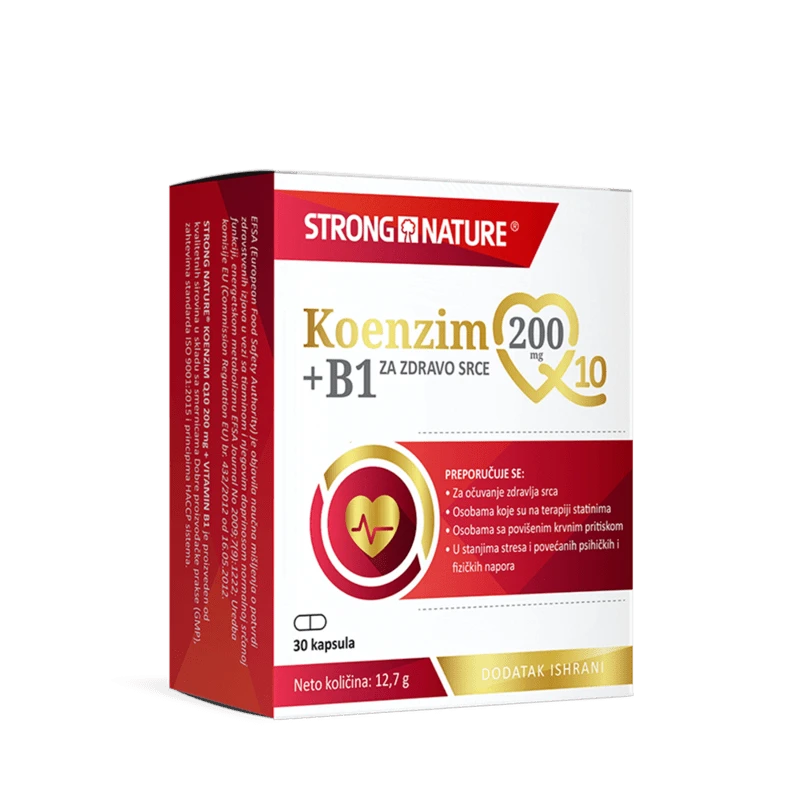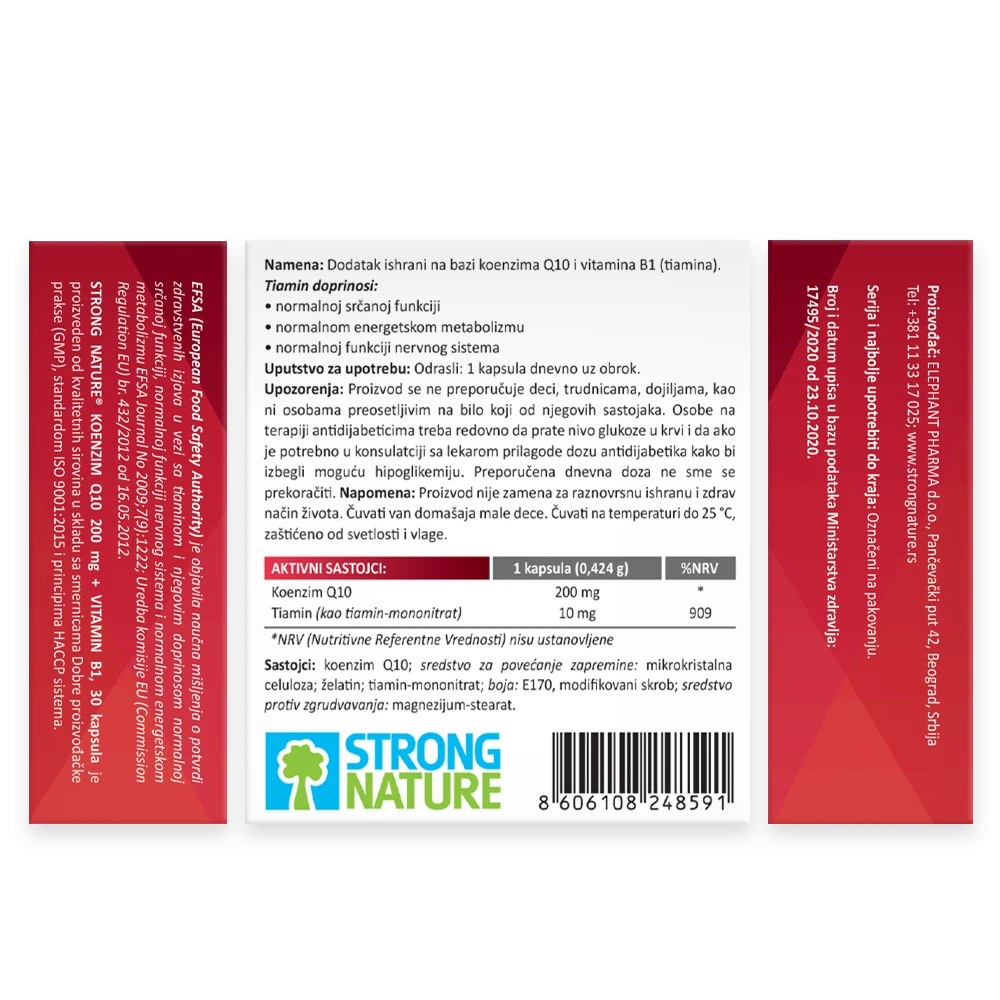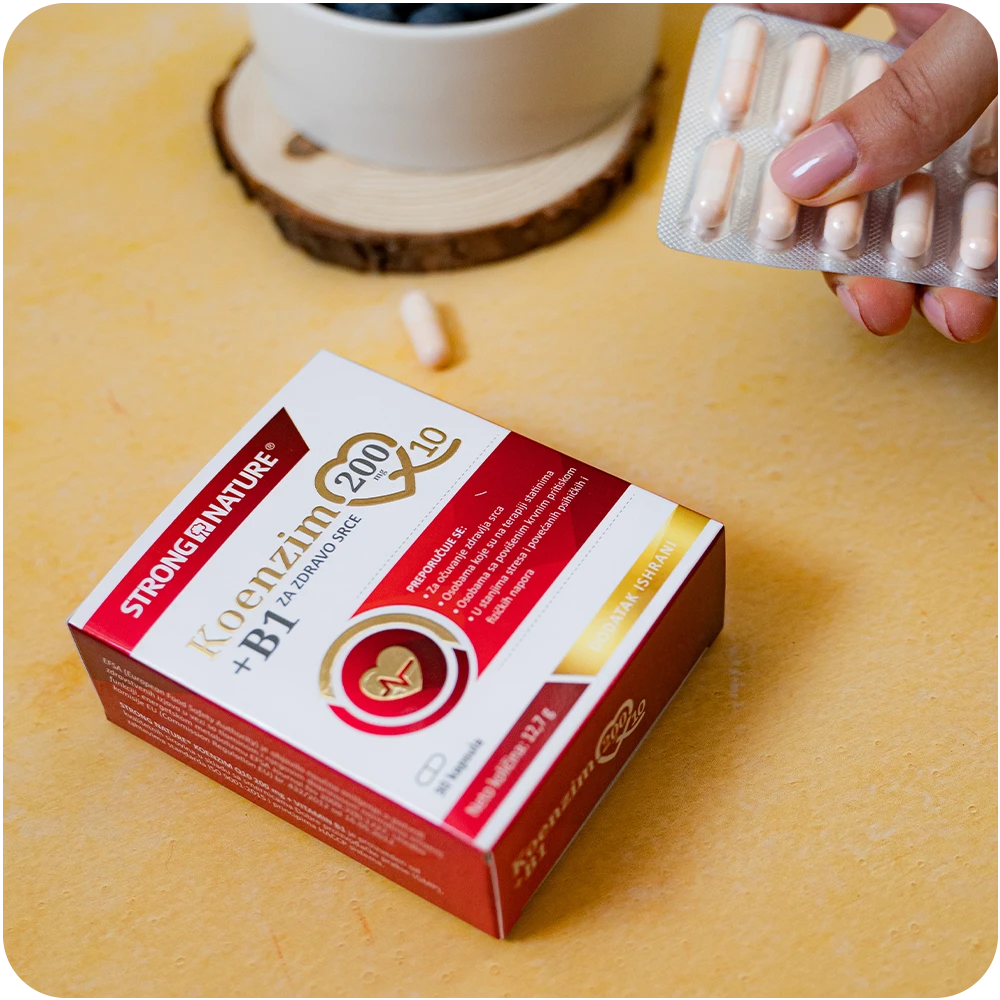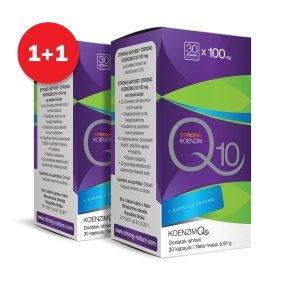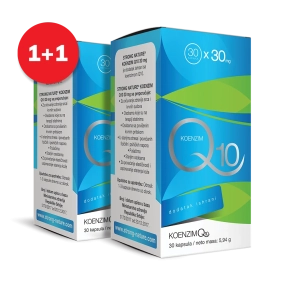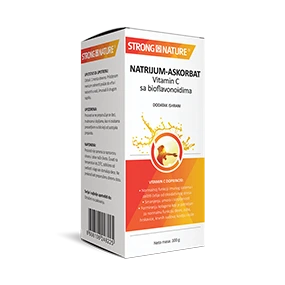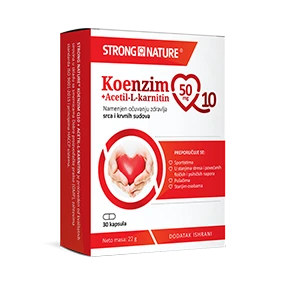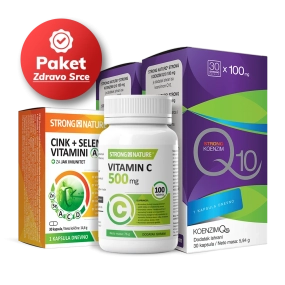As we age, the concentration of coenzyme Q10 significantly decreases, making it essential to supplement through food or dietary supplements. In individuals over 40, coenzyme Q10 levels are reduced by around 30%, while in those over 60, the reduction can be as much as 60–80% compared to younger individuals around 20 years old.
Coenzyme Q10 is a substance naturally present in the mitochondria, the parts of cells that serve as energy production centers and are essential for metabolic processes. Various pathological conditions and the use of medications (e.g., in cholesterol-lowering therapies) significantly increase the body's need for this micronutrient.
Vitamin B1, also known as thiamine is part of the B-vitamin complex. The B-vitamin complex is a class of water-soluble vitamins. Older adults are at a higher risk of vitamin B1 deficiency. Studies have shown that, on average, 20% to 30% of older adults are at increased risk for a deficiency in thiamine. Contributing factors can include chronic illnesses or long-term use of certain medications. Furthermore, research indicates that individuals with diabetes may have a reduction in thiamine levels by up to 76% in type I diabetes and by 50% to 75% in type II diabetes.
 English
English

